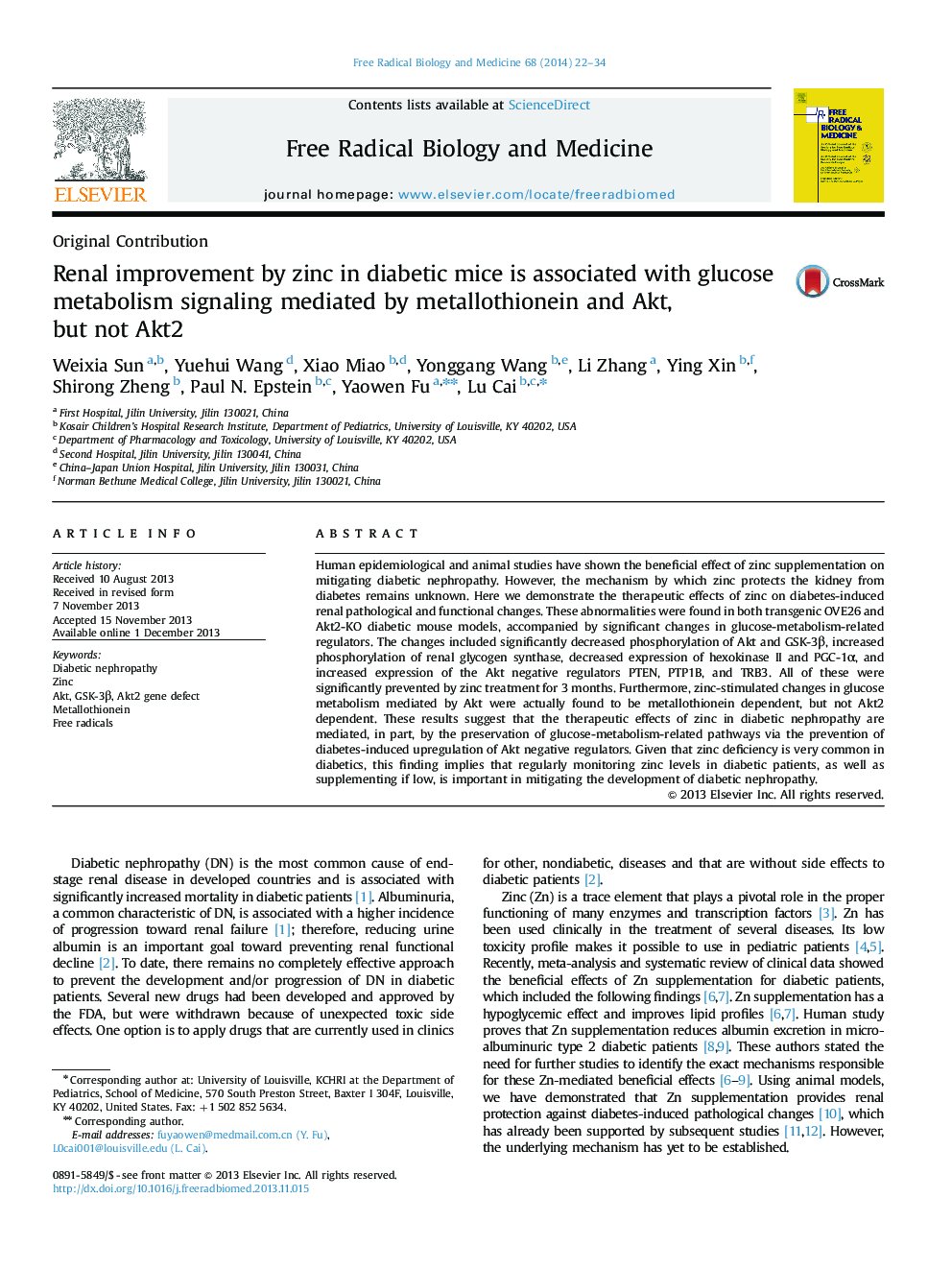| Article ID | Journal | Published Year | Pages | File Type |
|---|---|---|---|---|
| 10737905 | Free Radical Biology and Medicine | 2014 | 13 Pages |
Abstract
Human epidemiological and animal studies have shown the beneficial effect of zinc supplementation on mitigating diabetic nephropathy. However, the mechanism by which zinc protects the kidney from diabetes remains unknown. Here we demonstrate the therapeutic effects of zinc on diabetes-induced renal pathological and functional changes. These abnormalities were found in both transgenic OVE26 and Akt2-KO diabetic mouse models, accompanied by significant changes in glucose-metabolism-related regulators. The changes included significantly decreased phosphorylation of Akt and GSK-3β, increased phosphorylation of renal glycogen synthase, decreased expression of hexokinase II and PGC-1α, and increased expression of the Akt negative regulators PTEN, PTP1B, and TRB3. All of these were significantly prevented by zinc treatment for 3 months. Furthermore, zinc-stimulated changes in glucose metabolism mediated by Akt were actually found to be metallothionein dependent, but not Akt2 dependent. These results suggest that the therapeutic effects of zinc in diabetic nephropathy are mediated, in part, by the preservation of glucose-metabolism-related pathways via the prevention of diabetes-induced upregulation of Akt negative regulators. Given that zinc deficiency is very common in diabetics, this finding implies that regularly monitoring zinc levels in diabetic patients, as well as supplementing if low, is important in mitigating the development of diabetic nephropathy.
Related Topics
Life Sciences
Biochemistry, Genetics and Molecular Biology
Ageing
Authors
Weixia Sun, Yuehui Wang, Xiao Miao, Yonggang Wang, Li Zhang, Ying Xin, Shirong Zheng, Paul N. Epstein, Yaowen Fu, Lu Cai,
